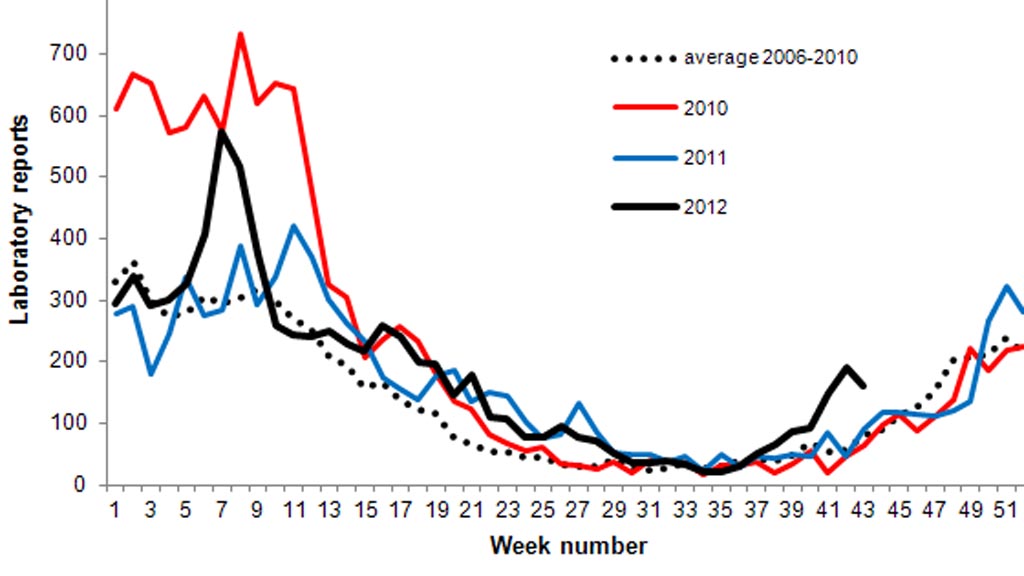Vomiting bug closes 45 hospital wards
Health officials reveal dozens of hospital wards have been closed over the last two weeks as it emerges there has been a 52 per cent rise in cases of the winter vomiting bug.

The disease is known as “winter vomiting disease” due to its seasonality and typical symptoms. The disease is more prominent during the winter months but infections can occur at any time of the year.
The ward closures, which took place between 12 and 25 November, are part of hospitals’ attempts to contain the extremely contagious infection.
Thousands of people have been struck down with a surge in norovirus, according to figures from the Health Protection Agency (HPA). Since July, the HPA has confirmed 1,975 cases in England and Wales – a 52 per cent rise on the number of cases last year when it was 1,301 for the same period.
Unreported
But the figure is likely to be much higher as many people do not report their illness to their GP. Norovirus is highly contagious and can be transmitted through contact with an infected person or contaminated surfaces and objects. It is known to spread rapidly in closed environments such as hospitals, schools and nursing homes.
Symptoms include sudden vomiting, diarrhoea or both, a temperature, headache and stomach cramps. The bug usually goes away within a few days.
Although people can suffer from norovirus at any time of the year, activity increases in the winter months, with most cases seen between October and April.

The HSA graph above shows how this year the virus is affecting considerably more people than the same period in 2011.